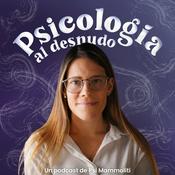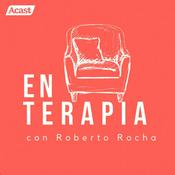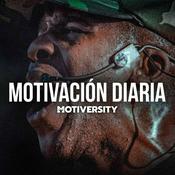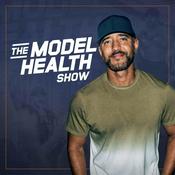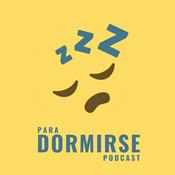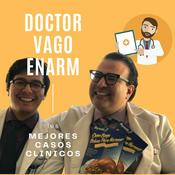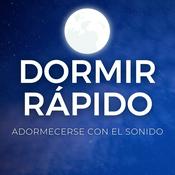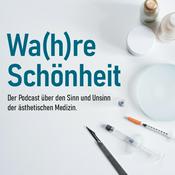Pediatric Physical Therapy - Pediatric Physical Therapy Podcast
67 episodios

Volume 28, Issue 1, Spring
01/1/1 | 34 min
In the spring edition of the Pediatric Physical Therapy podcast Kelly Lombard from Boston Children’s Hospital, MA talks about the benefits of intense physical therapy in a child who had a left ventricular assist device fitted as a bridge to cardiac transplantation after having a stroke. Rebecca Reubens from the University of South Florida in Tampa explains how a child with cerebral palsy benefited from physical therapy during an accelerated growth phase. Universal documenting is needed to assess physical therapy effectiveness in cerebral palsy according to Mary Gannotti of the University of Hartford in West Hartford, Connecticut. Laura Gilchrist from Children’s Hospitals and Clinics of Minnesota in Minneapolis explains why: Monitoring ankle range of motion to assess balance and measuring strength to assess walking capacity in patients with step-length abnormalities brings benefit to young patients cured of cancer but experiencing gait abnormalities caused by chemotherapy induced neuropathy. And: Therapists and surgeons are in agreement on the diagnosis of gait abnormalities, reports Stacey Miller from British Columbia Children’s Hospital in Vancouver. Also in the podcast: We hear about an investigation of bone mineral content in infants with spina bifida by Do Kyeong Lee from New York University in New York City. She found it improves with regular exercise training from just a few weeks of age continued during the first year of life.

Volume 31, Issue 1
01/1/1 | 44 min
01 Effects of Structured Exercise Training in Children and Adolescents with Juvenile Idiopathic Arthritis: A Systematic Review Susan Klepper PT, MS, PhD, former Assistant Professor Rehabilitation & Regenerative Medicine (Physical Therapy), Columbia University, New York, NY The purpose of this review was to update the evidence for safety and efficacy of structured exercise training in a variety of settings for children and adolescents with juvenile idiopathic arthritis. 02 The Timed Up and Go test in children: Does Protocol Choice Matter? A Systematic Review Evi Verbecque PT PhD, Post Doctoral Researcher, University of Hasselt, Limburg, Belgium Results on reliability and normative data for the Timed Up and Go test in children who are are systematically reviewed. 03 Effects of Instruction on Parent Competency during Infant Handling in a Neonatal Intensive Care Unit Eilish M. Byrne PT, DSc, PCS, CNT, Supervisor Physical Therapy Department, Lucile Packard Children's Hospital, Palo Alto, CA The purpose of this study was to investigate the effectiveness of three different methods for delivering instruction on infant handling to parents in the neonatal intensive care unit. 04 Developmental Trajectories and Reference Percentiles for the 6-Minute Walk Test for Children with Cerebral Palsy Alyssa LaForme Fiss PT PhD PCS, Associate Professor, Director of Physical Therapy Research, Mercer University, Atlanta, Georgia The purposes of this study were to: document longitudinal developmental trajectories in 6MWT distances and develop age-specific reference percentiles for children across different Gross Motor Function Classification System levels. 05 Progression of Ankle Plantarflexion Contractures and Functional Decline in DMD: Implications for Physical Therapy Management Michael Kiefer PT DPT, North Worcester, University of Massachusetts MA. Formerly: Pediatric Neuromuscular Unit, Cincinnati Children’s Hospital Medical Center, Cincinnati, Ohio This study characterizes the progressive loss of ankle dorsiflexion range of motion in boys with Duchenne muscular dystrophy, the relationship to functional decline, and the implications for physical therapy management. 06 Adapted dance improves motor abilities and participation in children with Down syndrome: A pilot study Michelle McGuire, PT MPT, Coordinator, Division of Occupational and Physical Therapy, Cincinnati Children’s Hospital Medical Center, Cincinnati, Ohio This pilot study measured effects of an adapted dance program on motor abilities and participation in children with Down syndrome and explored caregivers' qualitative feedback regarding its benefits. 07 Moving Toward Excellence in Pediatric Physical Therapy Education: A Scoping Review Deborah K. Anderson PT DPT PCS, Program Director, Physical Therapy, College of Health Sciences, Midwestern Universkity, Downers Grove, IL The purpose of this scoping review was to identify and map current evidence that underpins excellence in pediatric physical therapy education.

Volume 27, Issue 4, Winter
01/1/1 | 27 min
Featured are brief remarks from retiring Editor, Ann Van Sant, and new Editor, Linda Fetters. Authors of 5 papers appearing in this issue are interviewed: Joseph Schreiber describes work on experiential learning in pediatrics for physical therapist students. Lauren Del Rossi presents her treatment of a girl with Antley-Bixler syndrome. Sam Logan comments on his study of play, physical activity and behavior of toddlers with and without disabilities. Karina Zapata introduces her study comparing 2 interventions for adolescents with scoliosis and back pain. Leah Lowe describes her success providing supported treadmill training for children with developmental disabilities who are ambulatory.

Volume 21, Issue 3 Fall
01/1/1 | 28 min
In the Fall 2009 issue of Pediatric Physical Therapy: a comparison of AFOs for children with hemiplegia, the 30-second Walk Test expanded to children ages 5-17, factors associated with children's participation in a physically active video game, and more!

Volume 22, Issue 1 Spring
01/1/1 | 31 min
In this Spring 2010 podcast for Pediatric Physical Therapy: Part 2 of the updated Practice Guidelines for Neonatal Physical Therapy, a focus on pain in children and adolescents with cerebral palsy, and more!
Más podcasts de Salud y forma física
Podcasts a la moda de Salud y forma física
Acerca de Pediatric Physical Therapy - Pediatric Physical Therapy Podcast
Escucha Pediatric Physical Therapy - Pediatric Physical Therapy Podcast, Psicologia Al Desnudo | @psi.mammoliti y muchos más podcasts de todo el mundo con la aplicación de radio.net
Descarga la app gratuita: radio.net
- Añadir radios y podcasts a favoritos
- Transmisión por Wi-Fi y Bluetooth
- Carplay & Android Auto compatible
- Muchas otras funciones de la app
Descarga la app gratuita: radio.net
- Añadir radios y podcasts a favoritos
- Transmisión por Wi-Fi y Bluetooth
- Carplay & Android Auto compatible
- Muchas otras funciones de la app

Pediatric Physical Therapy - Pediatric Physical Therapy Podcast
Descarga la app,
Escucha.
